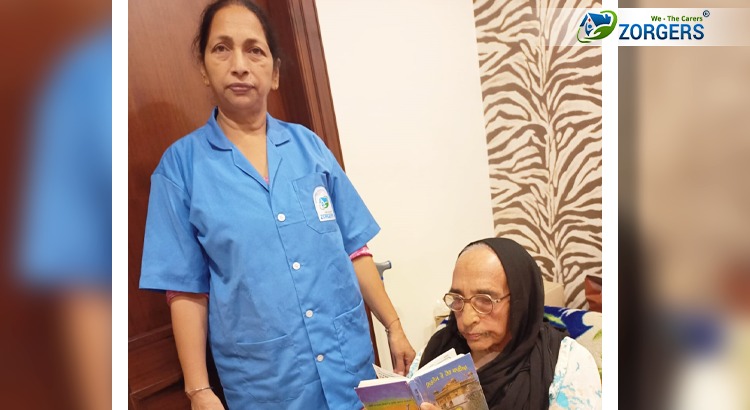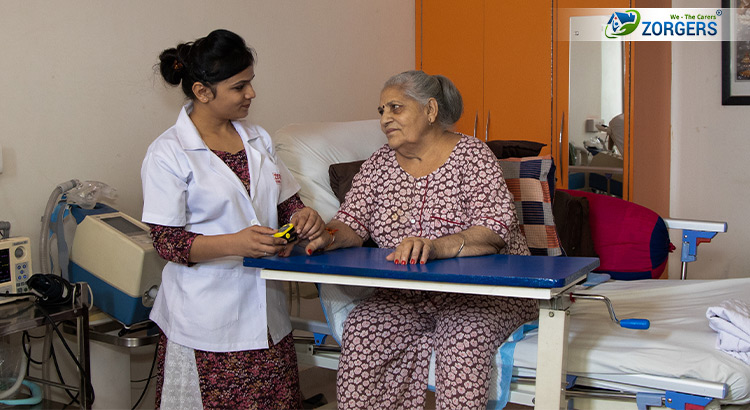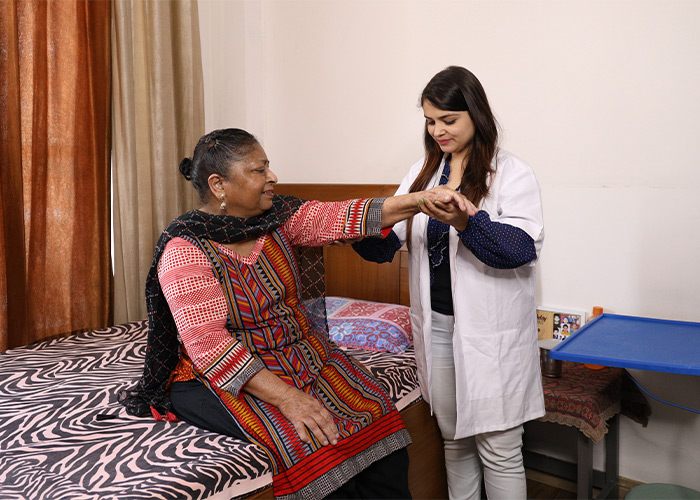Chronic conditions like diabetes, heart disease, arthritis, and respiratory disorders have become increasingly common, especially among the elderly population. Managing these health issues often requires consistent care, medication management, lifestyle adjustments, and emotional support. While families do their best to care for their loved ones, chronic conditions often demand professional attention to ensure effective management and a better quality of life.
This is where professional caregivers step in, playing a vital role in helping patients manage chronic illnesses in the comfort of their homes.
1. Personalized Care Plans
Chronic conditions vary from person to person, and so do their treatment and care requirements. Professional caregivers are trained to tailor care plans according to the patient’s individual needs. They work in collaboration with doctors and medical teams to implement care routines that include monitoring symptoms, managing medication schedules, and ensuring patients follow prescribed treatments. This personalized approach not only improves the patient’s health outcomes but also provides peace of mind to families.
2. Medication Management
One of the key challenges in managing chronic illnesses is adhering to complex medication regimens. Many patients, especially seniors, struggle to keep track of medications, leading to missed doses or incorrect usage, which can worsen their condition. Professional caregivers are equipped to manage medication schedules, ensuring that the right medications are taken at the right times. They also monitor for any side effects or changes in the patient’s condition, reporting back to healthcare providers when necessary.
3. Monitoring and Early Intervention
Caregivers are trained to observe subtle changes in a patient’s physical and emotional condition. Whether it’s a sudden change in mobility, appetite, mood, or pain levels, professional caregivers can identify early warning signs of potential complications and seek medical attention before things worsen. This proactive approach can prevent hospitalizations, reduce complications, and ensure that the patient’s health remains stable.
4. Emotional and Psychological Support
Living with a chronic condition can be emotionally draining for both the patient and their family. Professional caregivers provide not only physical care but also emotional support, acting as companions who offer encouragement and comfort. They build trust and rapport with patients, helping them cope with the mental stress and anxiety that often accompany long-term illnesses. This emotional bond plays a crucial role in improving the patient’s overall well-being.
5. Maintaining Independence at Home
Many patients with chronic conditions prefer staying at home rather than being moved to long-term care facilities or hospitals. With the help of professional caregivers, patients can maintain a higher degree of independence and enjoy the comfort of familiar surroundings. Caregivers assist with daily tasks like mobility, hygiene, meal preparation, and household chores, ensuring that patients can live with dignity while receiving the care they need.
6. Reducing Family Caregiver Burnout
Caring for a loved one with a chronic condition can be physically and emotionally exhausting for family members. Burnout among family caregivers is a common issue, as balancing work, family life, and caregiving responsibilities can take a toll. Professional caregivers offer a respite for family members, stepping in to provide expert care and allowing families to recharge. This not only benefits the patient but also helps family members maintain their well-being.
7. Ensuring Continuity of Care
Consistency is key in managing chronic conditions effectively. Professional caregivers ensure continuity of care, which is essential for long-term management of chronic illnesses. Whether it’s following up on doctor’s appointments, maintaining accurate records of the patient’s health progress, or adjusting care plans based on the patient’s evolving needs, caregivers ensure that there is no gap in care.
8. The Role of Technology in Home Care
In recent years, technology has revolutionized home healthcare, making it easier to monitor and manage chronic conditions. Professional caregivers often integrate digital tools like wearable devices, health monitoring apps, and telemedicine consultations to provide more accurate and timely care. These advancements enable caregivers to track vitals, schedule medication reminders, and communicate with doctors, further enhancing the quality of care patients receive at home.
Conclusion
Managing chronic conditions requires more than just medical treatment—it requires ongoing support, care, and attention to both the physical and emotional well-being of the patient. Professional caregivers play an indispensable role in ensuring that patients with chronic illnesses can manage their health effectively while continuing to live comfortably at home. With their expertise, compassion, and dedication, caregivers not only improve the health outcomes of patients but also bring peace of mind to families.
At Zorgers, we understand the unique challenges that come with managing chronic conditions. Our trained caregivers are here to provide the support your loved ones need, helping them lead a healthier, more independent life in the comfort of their home.






It’s encouraging to see how professional caregivers play such a vital role in managing chronic conditions. In Tiruppur, having access to quality home nursing services can significantly improve the quality of life for patients. Tailored care plans and emotional support not only help with physical ailments but also enhance overall well-being, allowing patients to thrive in their own homes.
The importance of medication management cannot be overstated, especially for seniors in Salem dealing with chronic conditions. Professional caregivers providing inhome nursing care ensure that medications are taken correctly and on time, reducing the risk of complications. This level of attention and expertise is essential for maintaining health and preventing unnecessary hospital visits.
I’m particularly impressed by how caregivers focus on monitoring and early intervention for patients in Erode. The proactive approach they take in observing subtle changes can make a significant difference in outcomes. Having an at home nurse who understands the nuances of chronic conditions can ensure that patients receive timely care and support, ultimately leading to better health management.
Emotional support is a critical aspect of chronic illness care that is often overlooked. In Tirunelveli, caregivers not only provide physical assistance but also act as companions who help patients cope with the psychological challenges of living with chronic conditions. This holistic approach offered by a nurse in home can make all the difference in enhancing the quality of life for both patients and their families.
The integration of technology in home medical services is a game changer for patients in Vellore. Utilizing digital tools and telemedicine consultations, caregivers can monitor health effectively and make adjustments as needed. It’s reassuring to know that families can find a care taker at home who is not only skilled but also adept at using modern technology to provide comprehensive support.